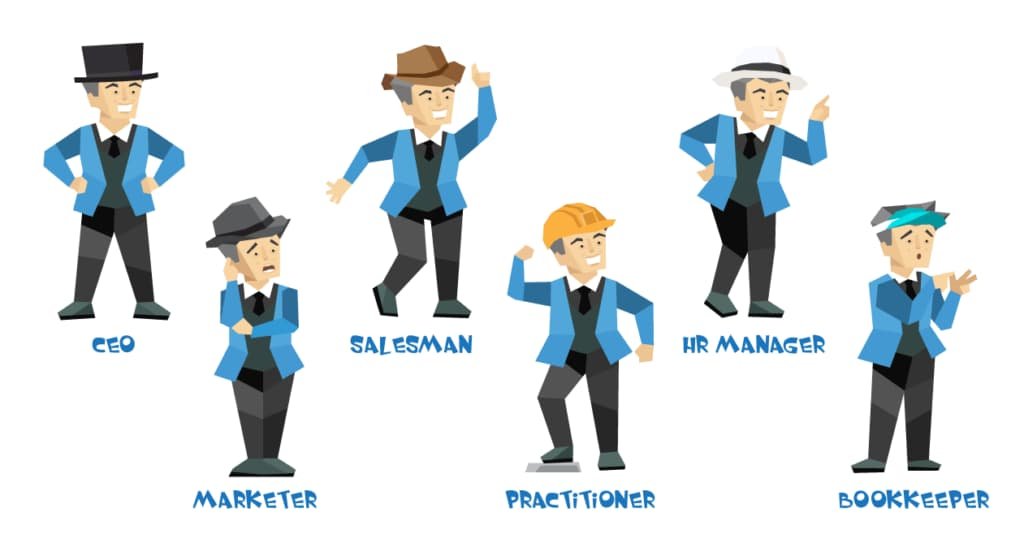The Challenge With Wearing Too Many Hats
Read Time 4 mins | Written by: Kylie Cannon, PMP
Anyone who’s been on the job market in the last decade has encountered the phrase “must be comfortable wearing multiple hats.” The expectation for employees to wear multiple hats – in other words, take on multiple disparate roles and responsibilities within a company – has become increasingly common, particularly in small to medium-sized organizations or startups seeking to maximize efficiency. In recent years, this expectation has been even more catalyzed, driven by the need for agility and efficiency in dynamic work environments. However, this trend presents specific challenges from a project management perspective.

In many ways, the trend towards multifunctional roles makes sense, particularly in small companies starting out with just a few employees. When a company is just starting out and has limited operating capital, the founder may need to serve as both lead scientist and both hiring and operations manager. The chief financial officer (CFO) may need to roll up their sleeves and serve as contract manager for a period or establish an interim customer relationship management (CRM) system. There’s a fundamental “do what needs to get done” attitude that underlies the idea of wearing multiple hats.
Staff serving in multifunctional roles enables the company to quickly adapt to shifting priorities. Indeed, one of the fundamental principles of Agile project management is the idea of cross-training to create more flexible teams. Cross-trained staff wearing multiple hats allow organizations to maximize the skill sets of their workforce, potentially reducing the need for additional hires (or layoffs during down periods). As employees gain a broader understanding of different functions and processes within the organization, it can also lead to increased teamwork, innovative problem solving, and a more resilient project team.
For a project manager, the challenge lies in striking a balance between leveraging the benefits of a multifunctional team and mitigating the risks associated with overburdening individuals. If an employee is wearing three hats at the same time, then no one assignment receives 100% of their attention. Sometimes the benefit of this approach outweighs the cost, but other times, the impact on quality may be undesirable. Clear communication of roles, responsibilities, and priorities is crucial to managing expectations and preventing role confusion.
Increasingly, job descriptions referencing to “multiple hats” and “fast-paced” environments are being seen as red flags amongst potential candidates. This is not because most employees want to serve in a rote or unilateral role, but instead because workplaces that ask employees to serve multiple roles often struggle with role ambiguity and conflicting priorities. They may feel that compensation does not align with the number of roles they are being asked to fulfill. Asking staff to wear too many hats may risk stress, burnout, and a decrease in overall job satisfaction as they struggle to juggle competing and sometimes conflicting priorities and demands.
Wearing multiple hats does not have to be a bad thing, but it does have to be done thoughtfully. The trend of employees being asked to wear multiple hats reflects the demand for versatility in the modern workplace. While this approach can enhance adaptability and collaboration, project managers must carefully navigate the associated challenges to maintain a healthy and productive work environment. Effective communication, strategic resource allocation, and a thoughtful approach to role definition are essential for successfully managing multifunctional teams in a project management context.
MustardSeed PMO specializes in helping organizations navigate the complexities of
managing multifunctional teams without compromising productivity, clarity, or
employee well-being. With tailored project and program management solutions, we
help define clear roles, streamline workflows, and establish effective communication
frameworks. Whether you're a growing startup or a scaling enterprise, our team
ensures that your workforce remains agile and efficient without risking burnout or
role ambiguity.
Ready to optimize your team's performance and drive sustainable growth? Schedule
a Discovery Call with MustardSeed PMO today and let’s build a strategy that works
for you.
MustardSeed Will Help You Grow Your Business With Little Effort.
Kylie Cannon, PMP
Kylie Cannon is an experienced Senior Project Manager with a strong track record of managing complex projects across diverse sectors. She has led global technology transfers and implemented best practices for project risk management and supply chain operations. Kylie’s ability to navigate cross-cultural communication challenges and deliver projects on time and within budget makes her a key asset to any team.